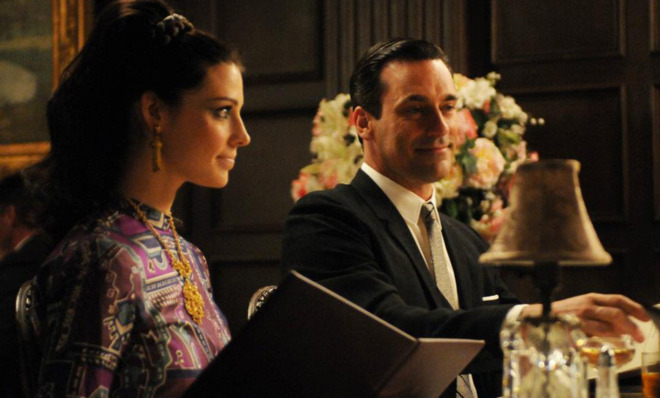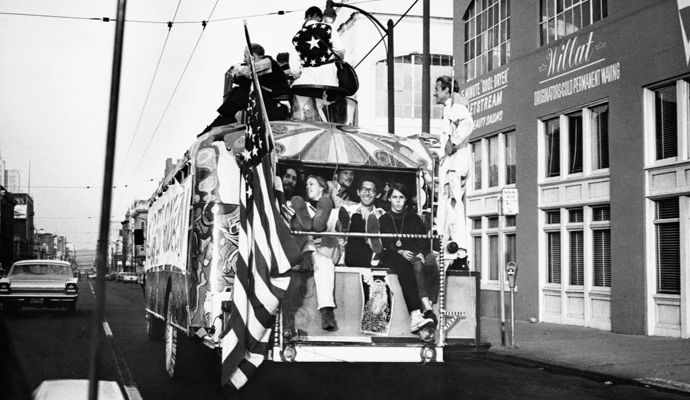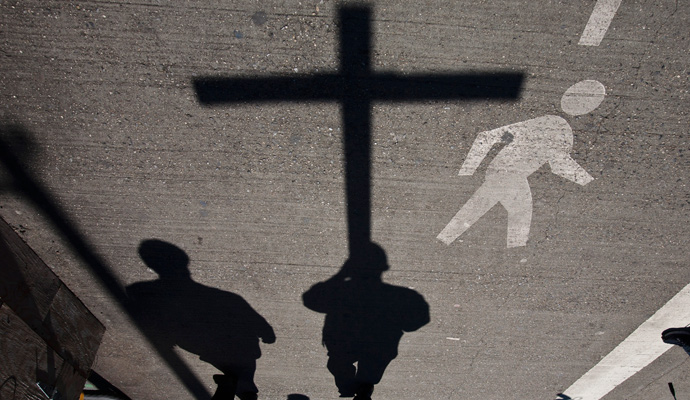For Christians, a silver lining to losing the culture war?
This will return the faith to a more pure and true place


A free daily email with the biggest news stories of the day – and the best features from TheWeek.com
You are now subscribed
Your newsletter sign-up was successful
As I wrote last year, the culture war is over, and conservatives lost. For Christians, though, there might just be a silver lining.
Now, of course, it's understandable why many of my fellow cultural conservatives mourn the decline of Christian values in the public arena, inasmuch as they had a powerful influence on the rise of western civilization. Historians like Rodney Stark and sociologists like Mary Eberstadt (and many others) have chronicled this phenomenon. It's not simply about "losing power and market share," but mourning the very real downstream effects of secular liberal policies on issues such as defending the unborn.
But there are reasons for Christian conservatives to be optimistic about these societal changes, too. For one thing, the good times weren't always so good. The peak of "Christian America" was probably the 1950s, and while this era had a veneer of spirituality and perhaps the post-war evangelical movement was at its apogee (think Billy Graham), America was plagued by the ugly reality of racism, which goes against the gospel. In many ways, the 1950s was a gilded age. While a lot of Americans presented themselves as Ward Cleaver, they drank and philandered like Don Draper.
The Week
Escape your echo chamber. Get the facts behind the news, plus analysis from multiple perspectives.

Sign up for The Week's Free Newsletters
From our morning news briefing to a weekly Good News Newsletter, get the best of The Week delivered directly to your inbox.
From our morning news briefing to a weekly Good News Newsletter, get the best of The Week delivered directly to your inbox.

In the 1960s and beyond, the rejection of Christianity was a logical extension for young people rebelling against the culture's sterility and their parent's phoniness. This was an ironic turn of events for a faith that began as a very revolutionary, counter-cultural movement about sacrifice and (yes, sometimes) suffering. But at some point, rather than being a dangerous choice, Christianity became the perfunctory, convenient, de rigueur even, choice of lemmings — and the way to gain the approval of the phony establishment, not unlike joining the Elks Lodge upon moving to a new town.
Eventually, in many parts of the country, the church became an almost wholly-owned subsidiary of the Republican Party, which pushed to return America to its Judeo-Christian heritage. This was a noble goal, but there might have been some unintended consequences. When religion enjoys the imprimatur of the state, it risks being corrupted and co-opted. Do Christians really want the state leading their children in prayer?
None of this, of course, is appealing to romantic young people who want to be boldly called to something larger than their own self interest. For this reason, we have seen the decline of mainline churches in America coincide with the rise of Christianity in other (less welcoming) parts of the world. And for this reason, I suspect, we have seen more and more young Christians checking out of politics.
That's why the loss of the culture war is an opportunity rather than a crisis. It is in times like these — when there is a stark cleavage between the world and believers — that Christianity typically grows and rediscovers its purpose.
A free daily email with the biggest news stories of the day – and the best features from TheWeek.com
Just as political parties wrestle with whether or not it's better to be a big tent, or (to paraphrase Reagan) to fly "a banner of no pale pastels, but bold colors," there is an argument that "nominal" Christians cause more problems than solutions. In politics, numbers matter, of course, and Christians who are still looking for a political savior may view this trend as bad news. But for Christians focused on something more transcendent — saving souls and winning real converts — there is a silver lining to losing the culture.

Consider this Christian Post article, citing Dr. Russell Moore, president of the Southern Baptist Convention's Ethics and Religious Liberty Commission:
While Americans have traditionally viewed church participation as necessary for acceptance in their communities, Moore believes that will no longer be the case. This means that there will be fewer "nominal Christians," or those who call themselves Christian but are not committed to the faith. With this "reverse rapture" of nominal Christians leaving the Church, Moore sees an opportunity for the Church to rediscover its true mission. [Christian Post]
The problem of "nominal" Christianity seems to have observable societal consequences, too. In his latest column for the New York Times, Ross Douthat hints at it, observing that "the social goods associated with faith flow almost exclusively from religious participation, not from affiliation or nominal belief."
Another possible silver lining: As Christianity recedes as the dominant cultural paradigm, it might also have the ironic affect of sparking a renewed interest and curiosity about spirituality. Absence, I suppose, can make the heart grow fonder. With Noah triumphing at the box office, and a new show called Resurrection on ABC (a show filled with biblical allusions), it would be easy to conclude that a disenchanted and dispirited nation — having given up hope that salvation will come in the form of traditional American institutions — is yearning for some sort of spiritual fulfillment.
Christ promised that genuine Christianity would be met with opposition. And the entire book of 1 Peter was written for this purpose: How do we live as a faithful minority? I don't think anyone should be rooting for persecution, of course, but I do think there may be some very positive developments to come from a nation that no longer pretends to be Christian. It's hard to be a rebel when you're The Man.
Matt K. Lewis is a contributing editor at TheWeek.com and a senior contributor for The Daily Caller. He has written for outlets including GQ Politics, The Guardian, and Politico, and has been cited or quoted by outlets including New York Magazine, the Washington Post, and The New York Times. Matt co-hosts The DMZ on Bloggingheads.TV, and also hosts his own podcast. In 2011, Business Insider listed him as one of the 50 "Pundits You Need To Pay Attention To Between Now And The Election." And in 2012, the American Conservative Union honored Matt as their CPAC "Blogger of the Year." He currently lives in Alexandria, Va.
-
 How the FCC’s ‘equal time’ rule works
How the FCC’s ‘equal time’ rule worksIn the Spotlight The law is at the heart of the Colbert-CBS conflict
-
 What is the endgame in the DHS shutdown?
What is the endgame in the DHS shutdown?Today’s Big Question Democrats want to rein in ICE’s immigration crackdown
-
 ‘Poor time management isn’t just an inconvenience’
‘Poor time management isn’t just an inconvenience’Instant Opinion Opinion, comment and editorials of the day
